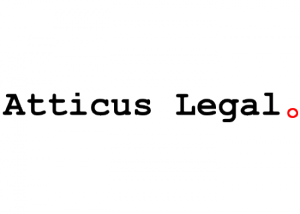What is a LIM? Do I need a LIM? Getting a LIM can help avoid buying a dog.
What is a LIM? A LIM (Land Information Memorandum) is a summary of information that the council holds on a property – ie. information on record. Some people believe that obtaining a LIM is not necessary, partly because they often do not reveal any problem. Sometimes those people are right, but sometimes they are wrong. Why take the risk? Is the property you are buying a dog? Getting a LIM may help you find out.
Atticus Legal, Specialist Property Lawyers Hamilton
At Atticus Legal, Property Lawyers Hamilton, we know all about LIMs. We’ve seen thousands of them over the years! We think it’s important that you understand them too. They are an important part of any property purchase. Feel free to call us if you want clarification on anything in this article.
What does a LIM contain?
The information summarised in a LIM includes, for example, zoning, whether there are any nearby ‘designations’ (eg. nearby road widening or proposed arterial routes), building consents and other consents issued, code compliance certificates issued, rates details, plumbing and drainage plans (important because you can’t build over them) and reports relating to the property (eg. soil reports where required as a condition of subdivision). Soil reports are important because they can contain recommendations or requirements as to the extent of the foundation works required on a new build.
Won’t somebody please think of the children!! Why do I need a LIM?
A LIM can also indicate whether any consents or notices have been issued in respect of the subject property or any adjacent property. The example I like to give is whether a consent has been issued for (or is it in a special zone permitting) the property next door to operate a brothel. I’m liberal, but not that liberal. Think of the children!
A LIM can also confirm whether any significant/structural alterations to a building do in fact have a building consent and code compliance certificate. It can also draw your attention to any known problems with the property (e.g. whether it lies in an area known to be prone to flooding). Bear in mind that a LIM will not tell you what is not known by the council about the property (eg. unconsented building works). These are important as they can put at risk your property insurance and any claim on it.
Sometimes what is not disclosed in the LIM is just as important as what is
You need to compare the LIM information on building consents and code compliance certificates issued with what actually exists on the property. For example, does that carport or other structural alteration that would have required a building consent actually have a consent/code compliance certificate as disclosed (or not disclosed) in the LIM? For more information on this see our Atticus Legal information sheet ‘How to avoid a DIY disaster’ on our website at https://atticuslegal.co.nz/home-renovation-how-to-avoid-a-diy-disaster/
A LIM is a summary only. It does not provide detailed information such as building plans filed for a building consent or council correspondence regarding the property. Those are held on the council ‘property file’. If a LIM alerts you to a problem it would then be advisable to ask to see the property file for more detail.
Limitations of LIM reports
The council does not carry out a site inspection when issuing a LIM. It is based solely on its records. LIMs contain various disclaimers alerting you to this and other limitations of the LIM – eg. that it does not guarantee the title boundaries and that information on utilities such as power or gas supply must be obtained from those providers, not the council.
Contamination
In the case of contamination, typically regional councils hold any contamination records rather than the local council, although the local council may hold them as well. So if you want to find out whether or not there is any existing contamination problem on record, you should also make inquiries with the regional council. Some regional councils will require you to apply and pay for a LIM from the regional council to obtain this information. If that is not the case (or if the regional council concerned does not issue LIMs) then you can make making verbal inquiries ‘over the counter’ at the regional council to ask if the property or any nearby property is on its Land Use Information Register and identified as a site on the Hazardous Activities & Industries List.
Also, especially if the property has been rented out, you may want to consider getting a methamphetamine test done – meth contamination is more prevalent than you might think.
One more thing to consider. Recent case-law has established that if you have not applied for the LIM yourself (ie. someone else has applied for the LIM such as the seller or the seller’s listing agent), the council does not owe you a duty of care in respect of information provided in the LIM. In such case, if the council is negligent by providing inaccurate or incomplete information in the LIM then you may not have a claim against the council in negligence. The solution to this is to either yourself apply for the LIM or to have your lawyer apply for it on your behalf.
The Hamilton City Council currently charges $370 for a residential LIM application (10 working days) and $485 for an ‘express LIM’ (3 working days). So it’s not cheap, but is recommended given the significance of the asset you are purchasing.
In what circumstances do I need a LIM?
We recommend that you make your purchase contract conditional upon your obtaining a satisfactory LIM report. If the LIM reveals a problem the general terms of the contract allow you to request the seller to fix those problems by settlement date. And if the seller refuses you can cancel the contract.
In fact we recommend you consider obtaining a LIM even if your contract is not conditional on a satisfactory LIM. If you don’t have a LIM condition you may not be able to cancel the contract if a LIM reveals a problem, but it is always better to know of the problem before settlement, rather than finding out later at which time your only remedy may to bring legal proceedings which can be expensive. For example, if a problem is found on the council records (eg. contamination or lack of a code compliance certificate) you may be able to negotiate a deduction from the price based on breach of certain warranties (promises) made by the seller in the standard general terms of the contract.
Inquiries alternative to a LIM
If you do not want to obtain a LIM then alternatively you could make over-the-counter inquiries at both local and regional councils which may alert you to problems with the property on record. Again, this is useful to know before settlement. See our article ‘What if I do not get a LIM? Is there an alternative to a LIM?’ at our website https://atticuslegal.co.nz/guidance-on-inquiries-with-council-as-alternative-to-a-lim/
WANT TO KNOW MORE? Just ask Atticus Legal, Property Lawyers Hamilton
CALL ANDREW SMITH, the owner of Atticus Legal, for expert professional advice on any of the matters referred to in this information sheet.
TO RECEIVE FURTHER INFORMATION SHEETS FROM ATTICUS LEGAL please ‘like us’ on Facebook to ensure you receive our future posts.
LAWYERS HAMILTON, LAWYERS HAMILTON NZ, PROPERTY LAWYERS HAMILTON
11 Garden Place (Level 7), HAMILTON
Ph: (07) 839 4558, Fax: (07) 839 4559, Mob: 021 508 189
Email: andrew@atticuslegal.co.nz
SEE OUR WEBSITE: https://atticuslegal.co.nz/
Disclaimer: The information contained in this information sheet is, of necessity, of a general nature only. It should not be relied upon without appropriate legal advice specific to your particular circumstances.
This information sheet is copyright © Atticus Legal, September 2016.



